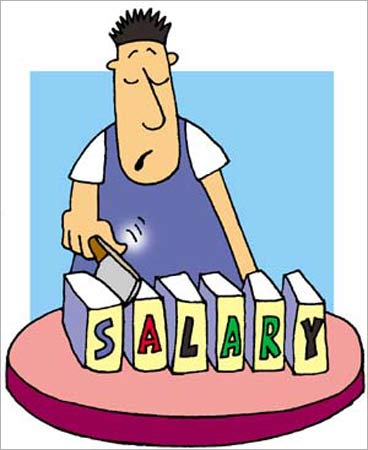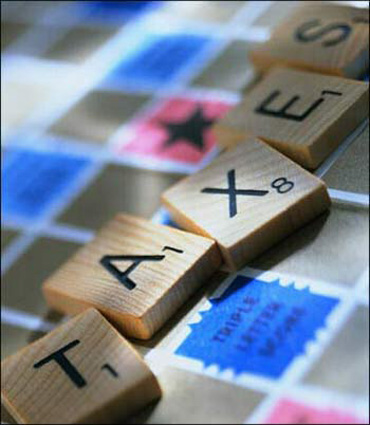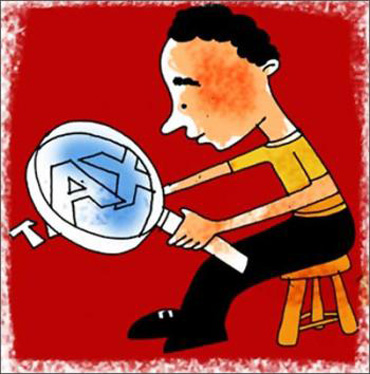People with more than Rs 10 lakh (Rs 1 million) annual income may not get the tax relief originally proposed in the Direct Taxes Code, as the finance ministry is for tweaking slabs across the board to offset concessions elsewhere.
Under the first draft of DTC -- which when implemented will replace the archaic Income Tax Act, 1961 -- income of Rs 10 lakh to Rs 25 lakh (Rs 2.5 million) was to attract tax at the rate of 20 per cent, but the final draft expected by June 15 may propose slapping 30 per cent tax on any income above Rs 10 lakh per annum, according to sources.
This is to make up for the possible concessions the ministry may extend in other areas like exempting long-term savings from tax at the time of withdrawal and the way Minimum Alternate Tax is calculated, sources said.
As such, the relief on highest tax slab would not be much, since under the present regime too, 30 per cent tax is imposed on income of more than Rs 8 lakh (Rs 800,000) a year.
. . .
Shocker! Govt may cut income tax relief
Sources said the ministry is reworking the August 2009 draft following feedback from stakeholders. Under this, the 10 per cent tax proposed on income up to Rs 10 lakh may now stand scaled down to Rs 5 lakh (Rs 500,000) a year.
And income of Rs 5-10 lakh a year would attract 20 per cent tax, although the first draft proposed slapping this rate on Rs 10-25 lakh income.
However, the threshold level of income that is exempt from tax may be raised to Rs 2 lakh (Rs 200,000) from Rs 1.6 lakh (Rs 160,000) at present.
The first draft had proposed retaining the threshold limit at Rs 1.6 lakh.
. . .
Shocker! Govt may cut income tax relief
Sources said the government has to generate tax revenue for meeting its expenses and it might yield to the 'genuine' demand of MAT being imposed on book profits rather than on gross assets as suggested in the first draft.
"Gross assets also include the debt portion of a company and it is highly illogical to tax debt," said a source.
MAT is a tax imposed on profit making companies who do not fall under any tax because of various exemptions.
Further, the ministry might also agree to retain the current provision of following exempt-exempt-exempt (EEE) model for long term savings like provident fund and pension, instead of changing to exempt-exempt-tax (EET). EET model implies that tax would be imposed on long-term savings at the time of withdrawal.
. . .
Shocker! Govt may cut income tax relief
On tax exemptions on home loans, on which the first draft is completely silent, sources said that there might be no rebates in the second draft as well, since the individual tax exemption limit on savings like insurance and others is proposed to be hiked to Rs 3 lakh (Rs 300,000) from the current Rs 1 lakh (Rs 100,000).
"This more than compensates" for doing away with tax rebates on the housing loans, the source said.
The final draft would be open for feedbacks from various stakeholders for 15 days, after which the ministry would put it up for the Cabinet's approval before taking it to Parliament.
Earlier, in this fiscal's Budget, the government had widened the tax slab so that tax of 30 per cent falls on income above Rs 8 lakh, 20 per cent on Rs 5-8 lakh and 10 per cent on Rs 1.6 lakh-5 lakh.





article